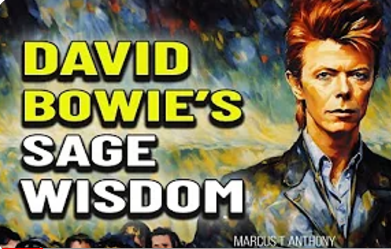Probably most people embarking on a higher degree, or starting out researching a book or article think that the task lying before them is going to be fairly dry and laborious.In this post I am going to explain to you why this isn’t necessarily so. Researching books, papers and articles can actually be an exciting and inspirational process. The key is being able to tap into your natural capacity for inspiration at will. And you can do that with what I call “Free-Form Writing”. Free-form writing is stream-of-consciousness prose, written fluidly, quickly and without immediate editing or too much conscious analytical thinking. It is essentially ‘effortless’ writing. I detail this inspirational writing process in my book How to Channel a PhD, but here I am going to let you in on the secret for free! You can use Free-Form Wriitng for any research, not just for writing doctoral theses.
I used Free-Form Writing extensively throughout the writing of my doctoral thesis, but particularly in the first two years of enrolment. A book which inspired me greatly in developing this process was Joan Bolker’s (1998) Writing Your Dissertation in Fifteen Minutes a Day. Bolker’s book is about writing a thesis through approximately four stages: the zero draft, first draft, second draft, and beyond.
In something of a synchronicity, I first came across the book while scrolling through Amazon.com. Even before I had formally enrolled in my doctoral program in Australia, a friend told me about Phillips and Pugh’s How to Get a PhD (which I also recommend for the logistical and technical aspects of obtaining a PhD). So I went to Amazon to check it out. I did in fact buy Phillips and Pugh’s book, but just happened to see Bolker’s book there too. The title looked a bit gimmicky, but I felt a strong urge to buy it (a case of The Feeling Sense). So I did
It was Bolker’s concept of “the zero draft” which really me. Bolker recommends writing from day one of the doctoral enrolment. Bolker suggests writing at least fifteen minutes a day, no matter what. The principle here is basically that you condition yourself to write habitually, so that on days that you do not write you actually feel bad! The “zero draft” involves writing whatever comes to you, and without editing, proof-reading or censoring yourself. There is no going back, not even for typos! Whatever ideas come into your mind about the thesis topic – connections, distinctions, hypotheses, questions, guesses, confusions, whatever – you write it down during your daily writing time.
Bolker’s argument is that inevitably, amongst all the ramblings of the mind, some useful ideas will come out. Even if the good bits represent a mere ten per cent of what you write, you will still have a lot of potentially usable writing after six months. In Bolker’s system, it is only later on that you begin putting together a first draft. That is when the process begins to look more like a traditional approach to writing a thesis, with a succession of drafts. I highly recommend Bolker’s book for anybody in the early stages of writing a thesis. In fact, I highly recommend it to any researcher in any discipline.
Bolker does not link her idea of a “zero draft” to mystical inspiration. However I adapted Bolker’s method to my understandings of Integrated Intelligence. Previously I had used Free-Form Writing when writing poetry and stories. I just wrote whatever came to me, and went back later to see if it was any good. Bolker made me realize I could use a similar process in the early stages of thesis writing – or any academic writing for that matter. Thus when I actually began typing, I simply allowed myself to enter a fluid stream of consciousness, and let the words pour out. I typically found that there was just so much wanting to be released from my mind, that fifteen minutes was just not enough. I adapted Bolker’s system so that I set myself a goal of writing five hundred words a day, every day, first thing in the morning.
Just as Bolker argues, I found that this writing process really clarified my thinking. During my Free-form Writing time ideas came together, and links between people, ideas, and historical and philosophical concepts suddenly began to make sense. I did not stop to check if the ideas were valid. I just kept writing.
This is thinking as you write, not thinking before you write.
As is obvious from this booklet’s subject matter, my worldview is rather mystical. I believe that there is a greater intelligence which contributes to the evolution of humanity, and indeed to the entire cosmos. So, where I differed from Bolker is that I adapted the process to my mystical/spiritual perspective. Before I started my daily writing session I began with a prayer or affirmation to Spirit. The word “Spirit”, for me, has both an impersonal and a personal dimension. The impersonal aspect emerges from the innate connectedness of all things, and is not mediated by any individual or spiritual entity. But I have also long had a strong sense of personal spiritual guidance also, and I believe that we can call upon spiritual guides for help – including during research! So when I engaged in my little morning prayer, it was both made to ‘the universe’ and to whatever spiritual guides may have been tuning in.
At the beginning of a writing session I would say aloud something like this (using examples from my own research).
Spirit, lead me through this writing process, so that this work that I am writing may be in alignment with Spirit.
There were often questions I would ask, and sometimes write down, to guide the whole process. For example:
- I don’t understand how Wilber’s thinking fits in with ancient thought like that of Lao Zi. Is it even the same thing?
- Where can I find evidence that the mind is not localized to the brain?
- Why is this psi taboo so pervasive in intelligence theory?
- How can I create a schema which helps situate all these theories of intelligence into a system that will make sense to my examiners?
Or the questions might be more general in nature
- I need help in turning this chapter into a coherent whole.
- Please help me make sense of Eric Jensen’s “g” concept. I’m struggling with it.
- I’m stuck with my writing. Please help it to flow.
- Would it be best to continue to research Gardner’s theory of multiple intelligences right now, or is there more energy on investigating Sternberg’s successful intelligence?
After putting out one or two questions (don’t ask more than a couple at one time, as it is too much for the mind to process at once) I would begin to write.
Note that in the very last question I used the term “energy on”. For me this is a general term which helps me to gain a sense of where the intuitive flow is heading at any given time, so that I can move along that river of ‘energy’. Of course I use the term ‘energy’ loosely, as it doesn’t refer to any of the four known forces of physics. What this flow is in scientific terms I do not know. All that I can say is that from my long experience in working with Integrated Intelligence, consciousness can align itself with a greater intelligence, and in doing so access the path of least resistance. When I am seeking “the energy on” a particular research route, I am therefore seeking that path of least resistance. I’ll write a little more about how to tap into optimal research paths a later in this booklet.
When beginning your Free-Form Writing (or any aspect of your research project which requires clarification) I suggest you use an affirmation or prayer that you feel comfortable with, one that reflects your particular worldview and belief system. And you don’t need to verbalize them, just in case you are in a public place.
Due to some administrative issues, my enrolment at The University of the Sunshine Coast (Queensland, Australia) was delayed by several months. Thanks to my habit of Free-form Writing, by the time I came to my official enrolment date, I already had about forty thousand words written on my computer, all related to my thesis topic. Later I began to put the ideas into longer arguments about certain aspects of the thesis as I saw it developing. Almost all of this initial work came together easily, if not effortlessly.
I emphasize that at least initially, I wrote about things that I was drawn to, to that which moved me – filled me with a sense of excitement (using The Feeling Sense – see below). In those early days I rarely even thought about what I was going to write before I sat down to write. Sometimes I would wake up in the morning and an idea would come into my head, and I would go with that. Other times I would begin with nothing. This may be difficult to believe, but there was not a single time in my entire period of enrolment when I had writer’s block.
Just as Bolker suggests, I went through drafting phases. Without doubt I enjoyed the earlier part of the writing process more than the later stages. I am naturally creative, but not much of a natural stickler for detail! When it came to the endless editing of chapters, it became a real test of self-discipline for me. I also found that my sense of connection to Integrated Intelligence dropped off as the process became more and more left-brained. This is probably an inevitable part of the thesis writing process. Inspiration is not really needed when you are crossing endless ‘T’s and dotting endless ‘I’s!
My policy of writing consistently paid off. I completed my thesis in less than four years while working as a teacher and administrator very full-time (up to twelve hours a day of working/commuting at times). When I enrolled in August 2002, I had not a single academic publication. By the time I was granted my PhD I had a total of over a dozen publication credits (either published or about to be published), including several book chapters. I had also completed the writing for my book Integrated Intelligence, which was based on my thesis research (Anthony 2008a).
In my next and final blog post on Free-Form Writing I will outline in more detail how to move from the zero draft to arrive at your final thesis, book, paper or article.
Marcus
How to Channel a PhD is available as a Kindle book; or in multiple e-formats at Smashwords.com. Read the first part of the book here for free!
[retweet] [twitter name=”marcustanthony1″]







1 thought on “How to write an inspiring book, article or research paper”
Pingback: Free-Form Writing: The 4 phases | MindFutres